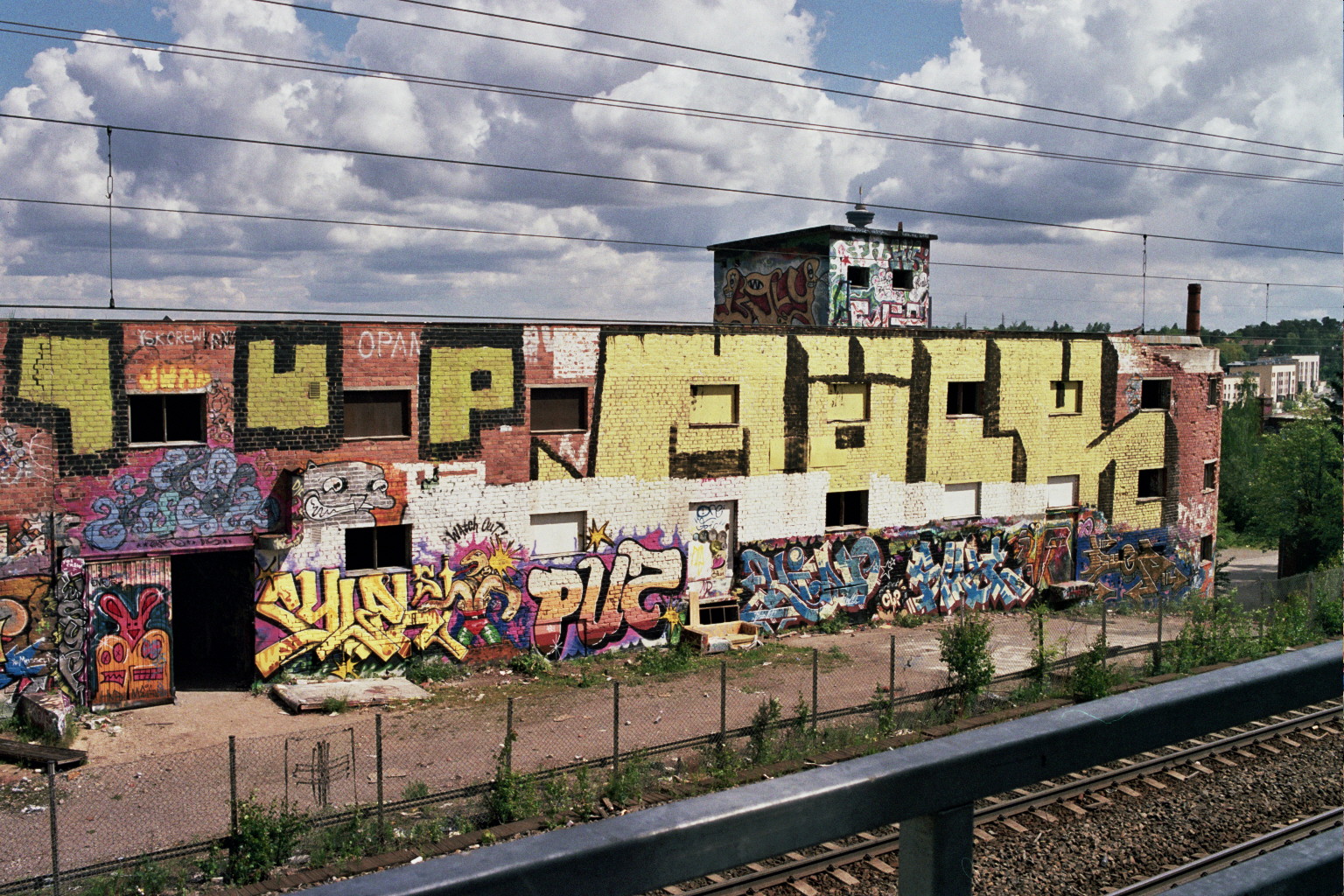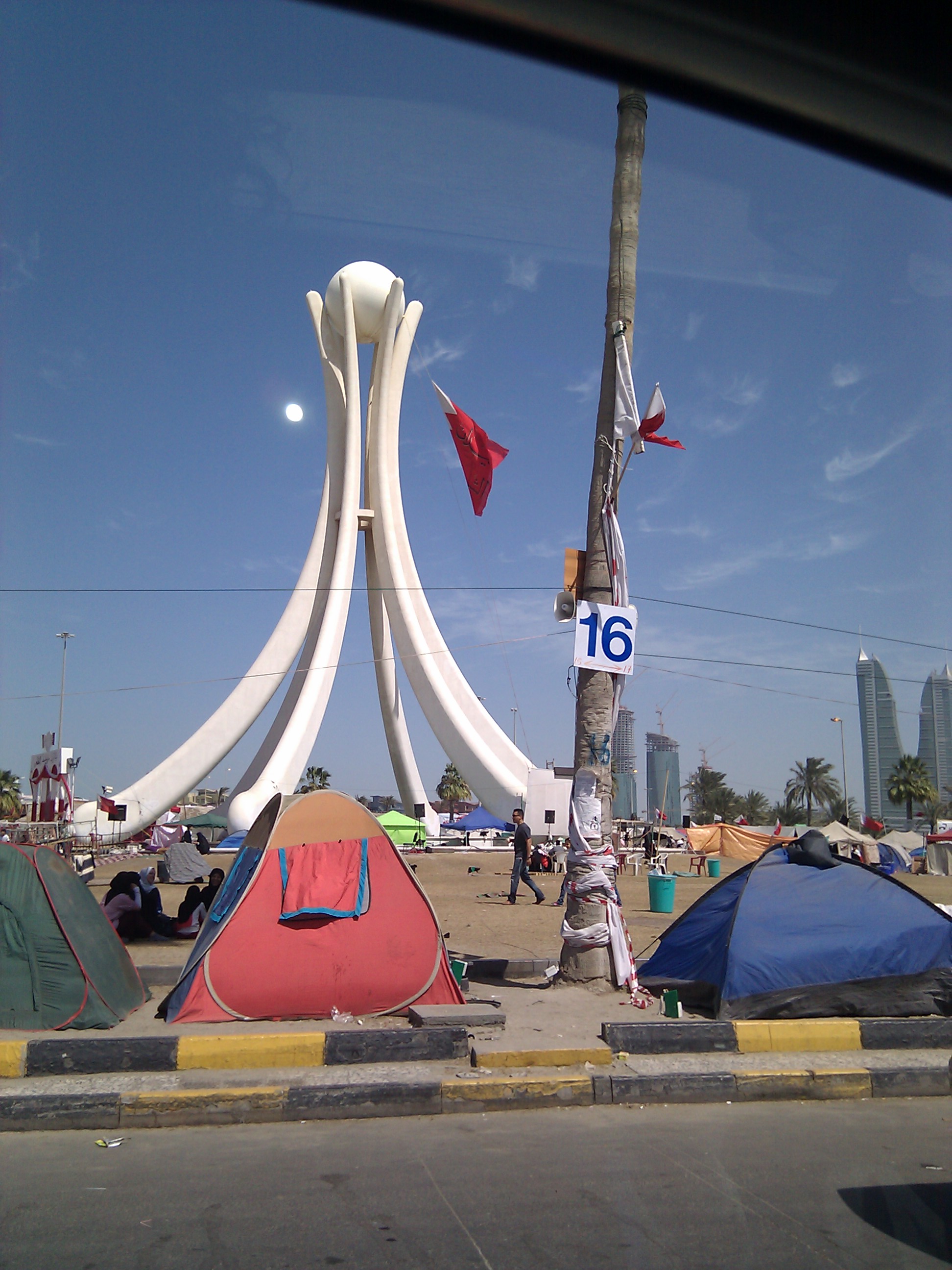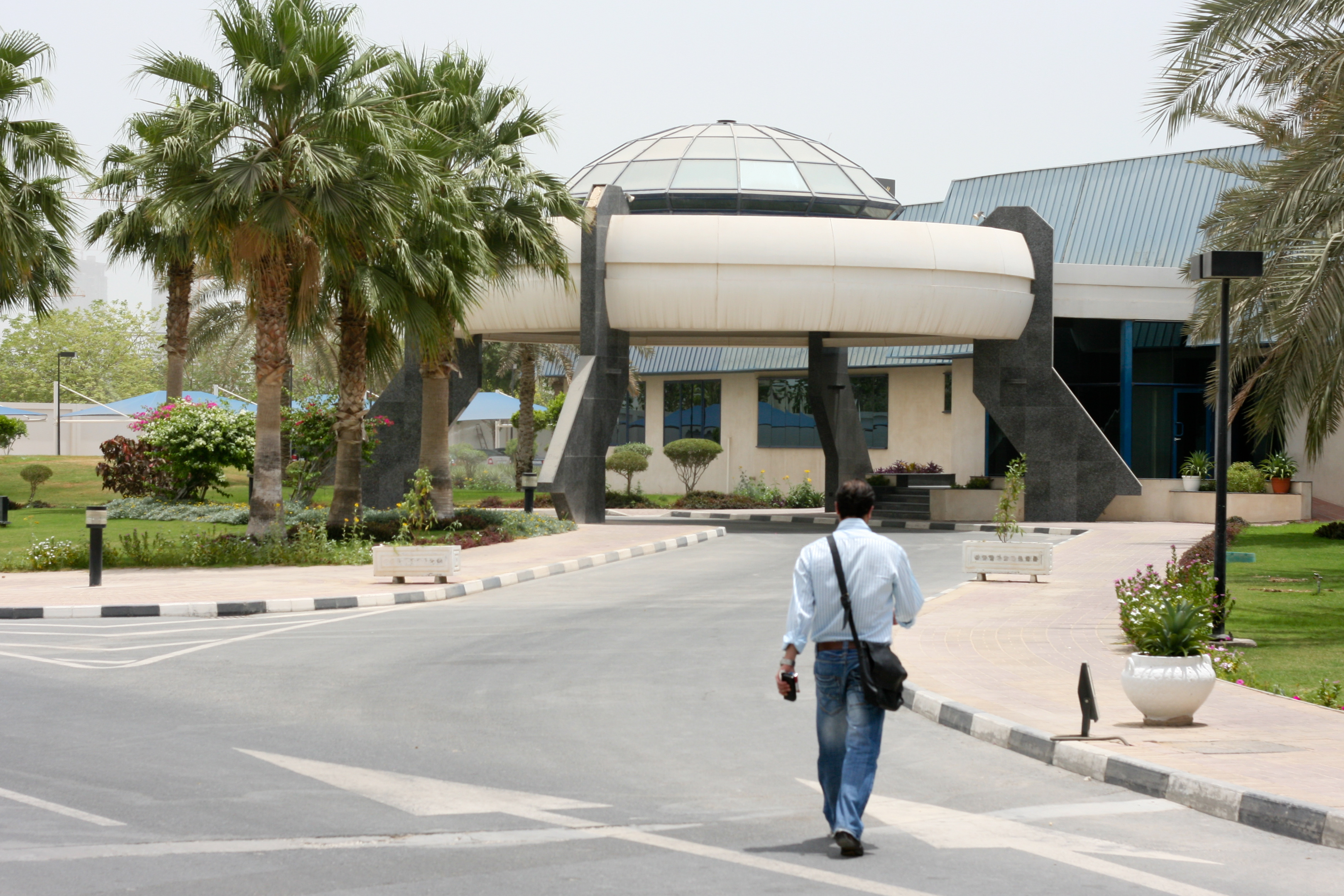|
February 14 Youth Coalition
Coalition Youth of 14 Feb Revolution (), sometimes called The Coalition () is a Bahraini youth group, named after the date of the beginning of Bahrain's uprising, and led by anonymous individuals who organize protests chiefly via new-media sites. The Coalition first appeared on the popular pro-democracy forum Bahrain Online. Their Facebook page started in April 2011 where they have 65,282 likes (as of July 2014). It is the main Facebook page that calls for daily peaceful demonstrations and protests. One of the first sub-groups called February 14 Youth was behind the call for demonstrations on February 14, 2011, named "Day of Rage" and developed later to a nationwide uprising. in 2017, the group has been designated as a terrorist organization by Bahrain, Saudi Arabia, United Arab Emirates and Egypt. Components Most of youths in the Coalition are not members of any political society. They communicate via internet and social networks, especially Facebook. Many of them are h ... [...More Info...] [...Related Items...] OR: [Wikipedia] [Google] [Baidu] |
Pressure Group
Advocacy groups, also known as interest groups, special interest groups, lobbying groups or pressure groups use various forms of advocacy in order to influence public opinion and ultimately policy. They play an important role in the development of political and social systems. Motives for action may be based on political, religious, moral, or commercial positions. Groups use varied methods to try to achieve their aims, including lobbying, media campaigns, awareness raising publicity stunts, polls, research, and policy briefings. Some groups are supported or backed by powerful business or political interests and exert considerable influence on the political process, while others have few or no such resources. Some have developed into important social, political institutions or social movements. Some powerful advocacy groups have been accused of manipulating the democratic system for narrow commercial gain and in some instances have been found guilty of corruption, fraud, ... [...More Info...] [...Related Items...] OR: [Wikipedia] [Google] [Baidu] |
March Intifada
The March Intifada ( ar, انتفاضة مارس) was an Rebellion, uprising that broke out in Bahrain in March 1965. The uprising was led by Leftist groups, the National Liberation Front – Bahrain calling for the end of the History of Bahrain (1783–1971)#British protectorate, British presence in Bahrain and numerous notable individuals participated in the uprising, including Wa'ad political activist Ali Rabea. The uprising was sparked by the laying-off of hundreds of Bahraini workers at the Bahrain Petroleum Company on March 5, 1965. Several people died in the sometimes violent clashes between protesters and police. Background and main events The uprising started when students of Manama High School, which then was the only high school in Bahrain, protested against the laying-off of hundreds of workers at BAPCO (Bahrain Petroleum Company), however, the protest was quickly suppressed by the infantry. The news of the crackdown created a nationwide uprising which would last for ... [...More Info...] [...Related Items...] OR: [Wikipedia] [Google] [Baidu] |
February 14 Youth Movement
February is the second month of the year in the Julian and Gregorian calendars. The month has 28 days in common years or 29 in leap years, with the 29th day being called the ''leap day''. It is the first of five months not to have 31 days (the other four being April, June, September, and November) and the only one to have fewer than 30 days. February is the third and last month of meteorological winter in the Northern Hemisphere. In the Southern Hemisphere, February is the third and last month of meteorological summer (being the seasonal equivalent of what is August in the Northern Hemisphere). Pronunciation "February" is pronounced in several different ways. The beginning of the word is commonly pronounced either as or ; many people drop the first "r", replacing it with , as if it were spelled "Febuary". This comes about by analogy with "January" (), as well as by a dissimilation effect whereby having two "r"s close to each other causes one to change. The ending of the ... [...More Info...] [...Related Items...] OR: [Wikipedia] [Google] [Baidu] |
Self-determination
The right of a people to self-determination is a cardinal principle in modern international law (commonly regarded as a ''jus cogens'' rule), binding, as such, on the United Nations as authoritative interpretation of the Charter's norms. It states that peoples, based on respect for the principle of equal rights and fair equality of opportunity, have the right to freely choose their sovereignty and international political status with no interference. The concept was first expressed in the 1860s, and spread rapidly thereafter. During and after World War I, the principle was encouraged by both Soviet Premier Vladimir Lenin and United States President Woodrow Wilson. Having announced his Fourteen Points on 8 January 1918, on 11 February 1918 Wilson stated: "National aspirations must be respected; people may now be dominated and governed only by their own consent. 'Self determination' is not a mere phrase; it is an imperative principle of action." During World War II, the princip ... [...More Info...] [...Related Items...] OR: [Wikipedia] [Google] [Baidu] |
Ash-shab Yurid Isqat An-nizam
' ( ar, الشعب يريد إسقاط النظام, lit=the people want to bring down the regime, ) is a political slogan associated with the Arab Spring. The slogan first emerged during the Tunisian Revolution. The chant echoed at Avenue Habib Bourguiba in Tunis for weeks. The slogan also became used frequently during the 2011 Egyptian revolution. It was the most frequent slogan, both in graffiti and in chants in rallies, during the revolution in Egypt. The chant was raised at the protests in Bahrain. ''Ash-shab yurid isqat an-nizam'' has been used frequently in protests across Yemen. The slogan was used in rallies across Libya at the beginning of the 2011 revolt. In March 2011, a group of youths under the age of 15 were arrested in Dera'a in southern Syria, after having sprayed ''ash-shab yurid isqat an-nizam'' graffiti. Their arrests sparked the uprising in Syria. The slogan was also used frequently in Sudan throughout the protests. In Jordan, a youth group named "24 March ... [...More Info...] [...Related Items...] OR: [Wikipedia] [Google] [Baidu] |
National Action Charter Of Bahrain
The National Action Charter of Bahrain is a document put forward by King Hamad ibn Isa Al Khalifah of Bahrain in 2001 in order to end the popular 1990s Uprising and return the country to constitutional rule. It was approved in a national referendum in 2001, in which 98.4% of the voters voted in favor of the document. Referendum The referendum took place on 14 and 15 February. Voter turnout was 90.2%, with 98.41% voting in favour. Elections Today, Spring 2001, p26 Results See also * Full text of the National Action Charter of Bahrain R ...
|
Constitutional Monarchy
A constitutional monarchy, parliamentary monarchy, or democratic monarchy is a form of monarchy in which the monarch exercises their authority in accordance with a constitution and is not alone in decision making. Constitutional monarchies differ from absolute monarchies (in which a monarch is the only decision-maker) in that they are bound to exercise powers and authorities within limits prescribed by an established legal framework. Constitutional monarchies range from countries such as Liechtenstein, Monaco, Morocco, Jordan, Kuwait, and Bahrain, where the constitution grants substantial discretionary powers to the sovereign, to countries such as Australia, the United Kingdom, Canada, the Netherlands, Spain, Belgium, Sweden, Malaysia, Thailand, Cambodia, and Japan, where the monarch retains significantly less personal discretion in the exercise of their authority. ''Constitutional monarchy'' may refer to a system in which the monarch acts as a non-party political head of ... [...More Info...] [...Related Items...] OR: [Wikipedia] [Google] [Baidu] |
Graffiti In Barbar 02
Graffiti (plural; singular ''graffiti'' or ''graffito'', the latter rarely used except in archeology) is art that is written, painted or drawn on a wall or other surface, usually without permission and within public view. Graffiti ranges from simple written words to elaborate wall paintings, and has existed since ancient times, with examples dating back to ancient Egypt, ancient Greece, and the Roman Empire. Graffiti is a controversial subject. In most countries, marking or painting property without permission is considered by property owners and civic authorities as defacement and vandalism, which is a punishable crime, citing the use of graffiti by street gangs to mark territory or to serve as an indicator of gang-related activities. Graffiti has become visualized as a growing urban "problem" for many cities in industrialized nations, spreading from the New York City subway system and Philadelphia in the early 1970s to the rest of the United States and Europe and other world ... [...More Info...] [...Related Items...] OR: [Wikipedia] [Google] [Baidu] |
Pearl Roundabout
The GCC Roundabout, known as Pearl Roundabout or Lulu Roundabout (Arabic: ', "Roundabout of the pearl(s)" was a roundabout located near the financial district of Manama, Bahrain. The roundabout was named after the pearl monument that previously stood on the site and was destroyed on 18 March 2011 by government forces as part of a crackdown on protesters during the Bahraini uprising of 2011. History The roundabout was located in the heart of the capital Manama and was surrounded by the Bahrain Central Market, Marina, Pearl and City Center Roundabout as well the Abraj Al Lulu (Pearl Towers) apartment complex, which is named after the Pearl Monument. Also near the destroyed roundabout are some of the city's major remaining landmarks, including the Bahrain World Trade Center and the Bahrain Financial Harbour. The roundabout served originally as a major traffic intersection for routes into the capital city, although it is now bypassed by a flyover and junction complex built as part ... [...More Info...] [...Related Items...] OR: [Wikipedia] [Google] [Baidu] |
Al Jazeera
Al Jazeera ( ar, الجزيرة, translit-std=DIN, translit=al-jazīrah, , "The Island") is a state-owned Arabic-language international radio and TV broadcaster of Qatar. It is based in Doha and operated by the media conglomerate Al Jazeera Media Network. The flagship of the network, its station identification, is ''Al Jazeera.'' The patent holding is a "private foundation for Public interest law, public benefit" under Qatari law. Under this organizational structure, the parent receives Financial endowment, funding from the Cabinet of Qatar, government of Qatar but maintains its editorial independence. In June 2017, the Saudi, Emirati, Bahraini, and Egyptian governments insisted on the Proscription, closure of the entire conglomerate as one of thirteen demands made to the Government of Qatar during the Qatar diplomatic crisis. The channel has been criticised by some organisations as well as nations such as Saudi Arabia for being "Qatari propaganda". Etymology In Arabic, ' l ... [...More Info...] [...Related Items...] OR: [Wikipedia] [Google] [Baidu] |
2011 Libyan Civil War
The First Libyan Civil War was an armed conflict in 2011 in the North African country of Libya that was fought between forces loyal to Colonel Muammar Gaddafi and rebel groups that were seeking to oust his government. It erupted with the Libyan Revolution, also known as the 17 February Revolution. The war was preceded by protests in Zawiya on 8 August 2009 and finally ignited by protests in Benghazi beginning on Tuesday, 15 February 2011, which led to clashes with security forces who fired on the crowd. The protests escalated into a rebellion that spread across the country, with the forces opposing Gaddafi establishing an interim governing body, the National Transitional Council. The United Nations Security Council passed an initial resolution on 26 February, freezing the assets of Gaddafi and his inner circle and restricting their travel, and referred the matter to the International Criminal Court for investigation. In early March, Gaddafi's forces rallied, pushed eastward ... [...More Info...] [...Related Items...] OR: [Wikipedia] [Google] [Baidu] |
Egyptian Revolution Of 2011
The 2011 Egyptian revolution, also known as the 25 January revolution ( ar, ثورة ٢٥ يناير; ), began on 25 January 2011 and spread across Egypt. The date was set by various youth groups to coincide with the annual Egyptian "Police holiday" as a statement against increasing police brutality during the last few years of Hosni Mubarak's presidency. It consisted of demonstrations, marches, occupations of plazas, non-violent civil resistance, acts of civil disobedience and strike action, strikes. Millions of protesters from a range of socio-economic and religious backgrounds demanded the overthrow of Egyptian President Hosni Mubarak. Violent clashes between security forces and protesters resulted in at least 846 people killed and over 6,000 injured. Protesters retaliated by burning over 90 police stations across the country. The Egyptian protesters' grievances focused on legal and political issues, including police brutality, state-of-emergency laws, lack of political free ... [...More Info...] [...Related Items...] OR: [Wikipedia] [Google] [Baidu] |







